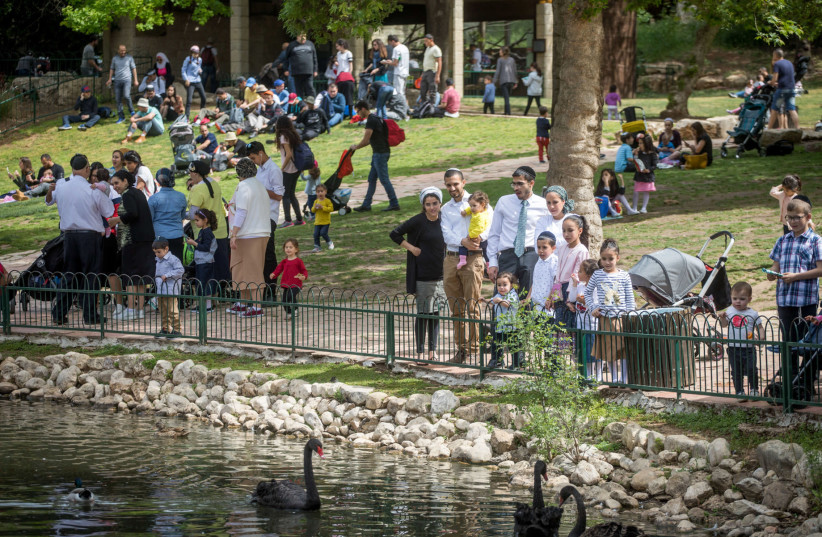Visitors to one of Jerusalem's top tourist attractions are seeing stripes. Just in time for the Chinese New Year "Year of the Tiger," Israel's Biblical Zoo announced the reopening of its tiger exhibit on Tuesday.
The exhibit's new resident, a two-year-old female tiger named Jakarta, arrived last month from the Athens Zoo, according to the Tisch Family Biblical Zoo.
Jakarta is a Sumatran tiger, a subspecies listed as critically endangered on the International Union for Conservation of Nature's Red List. There are an estimated 400 Sumatran tigers remaining in the wild. The subspecies of large cats is native to the Indonesian island of Sumatra.

The exhibit, which first opened in 2007, closed last year after two tigers, Hannah and Avigdor, died of old age. Avigdor, who was 16-and-a-half years old, was believed to be the oldest male Sumatran tiger in captivity.
The COVID-19 pandemic has proven challenging for most of Jerusalem’s attractions, but for the zoo, it has provided an opportunity for growth and renewal. Some new zoo programs include expansion of an outdoor learning program to six more schools, sponsored by the Jerusalem Foundation and representing all sectors of Jerusalem’s diverse population. It includes children with special needs, and youth at risk who are accompanied by their school teacher and a guide.
Another addition is the zoo's own youth movement called Tenuat Noah for 14- to 16-year-olds. They meet once a week for animal studies, go behind the scenes with the zookeepers to feed the animals, help with their training sessions, and find out how to take care of sick animals.
